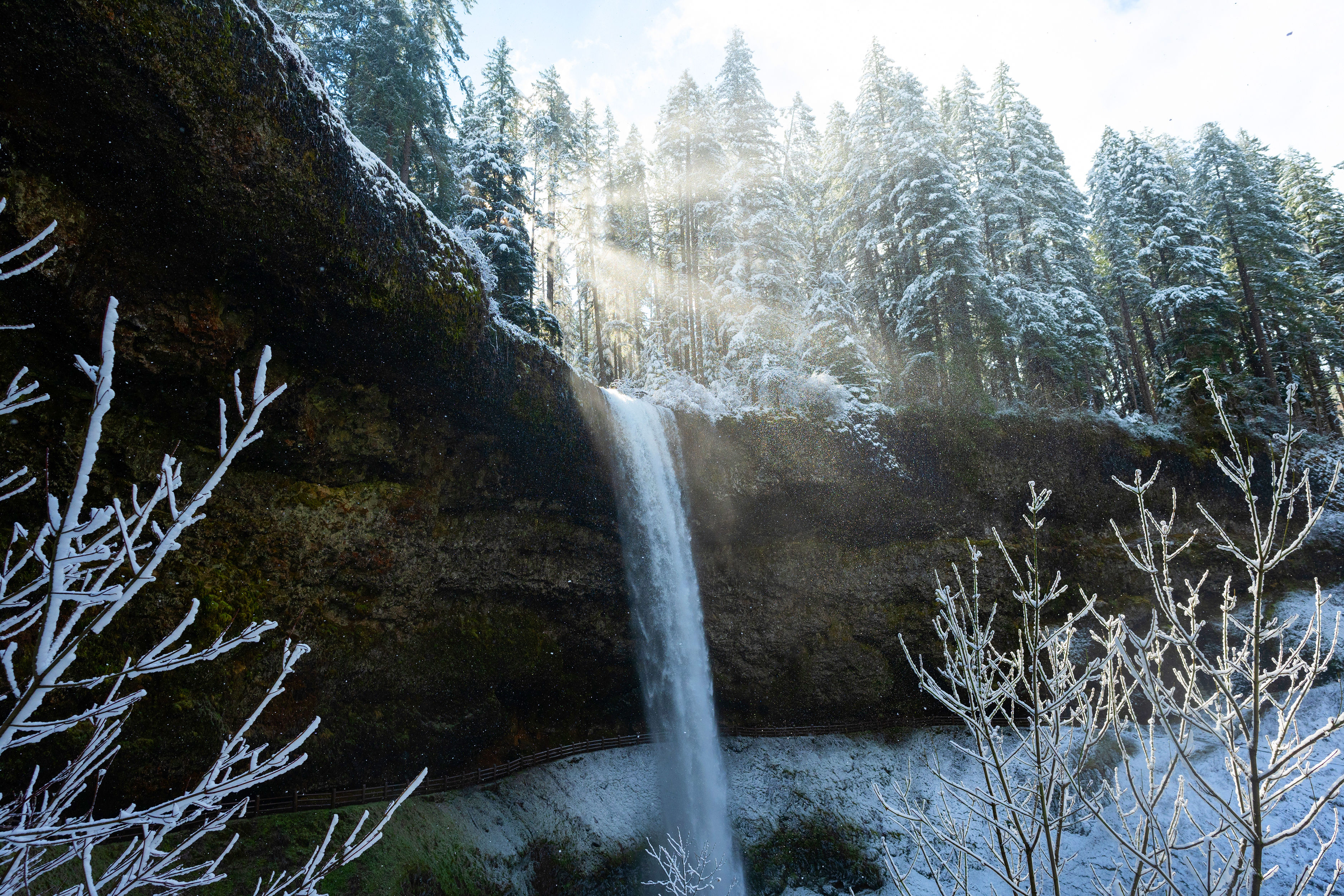What the Festival Roars Back For Its 5th Year
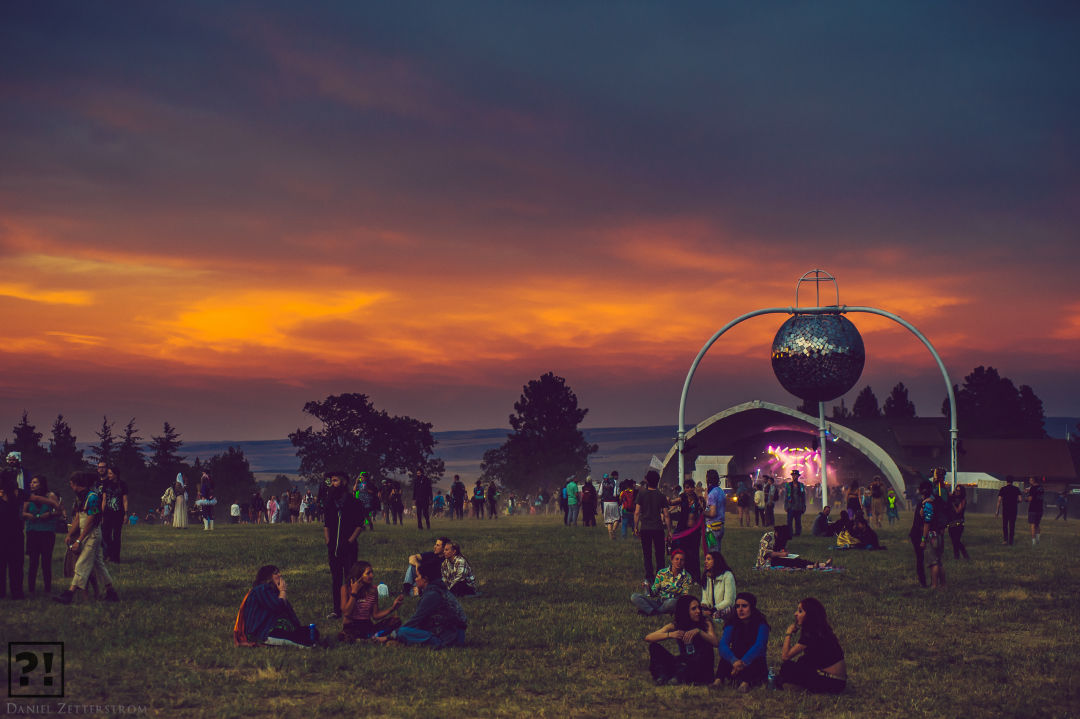
What the Festival 2015
Image: Daniel Zetterstrom
What the Festival is finally back.
A wading pool. A hookah lounge. Yoga classes. An illuminated forest. And that's before we get to the music. What the Festival is back again with a kick-ass lineup. (Spoiler: Thievery Corporation is bringing a full 18-person band.)
The "boutique" festival is now in its fifth year—fourth in its current location outside Dufur, Oregon, just south of the Dalles. Known even by non-participants for its aforementioned wading pool and by participants for its mellow vibes, eclectic electronica lineup, and neighborly size, the festival has quickly carved out a space for itself in Oregon's already crowded list of summer musts.
Success wasn't always assured. The idea for WTF was hatched in the fall of 2011 by a trio of Portland Burners: Glen Boyd, his wife Tiffany Boyd, and their friend and music producer Peter Clark. "I really felt like there was an opportunity in the Northwest to do something," says Glen. "There was a vacuum." In the summer of 2012, the founders went for it, gathering a crowd of 2,000 campers and inviting national headliners Bonobo, Dillon Francis, and Adventure Club mixed with local DJs and producers. Painful lessons followed. "We were really well received for a new festival," says Glen. "But we lost our ass financially. That was a really tough year."
And yet. "The crowd response was just so solid," adds Peter. "It was undeniable that the market was in need of something."
So instead of hanging up their hats, they doubled down. Glen and Tiffany purchased a permanent home for WTF, Wolf Run Ranch outside Dufur, where it has lived, grown, and thrived since 2013. In anticipation of this year's festival, which kicks off next Friday, June 17, we talked to Glen and Peter about the new changes, their growth plan, and how to have a great time at WTF (clue: it's not hard).
So guys, what's new this year?
GLEN: We’ve put a significant amount of effort in our late night offerings, and having music down in the forest. At night, it becomes this illuminated wonderland. I don’t want to say "Disneyland Main Street parade," but all this art comes alive. Plus, we have a bunch of new smaller stages down in the forest.
This kind of came about as a byproduct of needing to have a level of noise curfew with the neighbors, even though we’re out in a rural, remote area. The neighbors were really concerned about sound after midnight. The change was to shut all of our main stages—the big thundering stages that hold thousands of people—at midnight. So we have all these little zones that come alive after midnight that are all designed to hold anywhere from 500 to 750 people. So there’s all this activity that is dispersed.
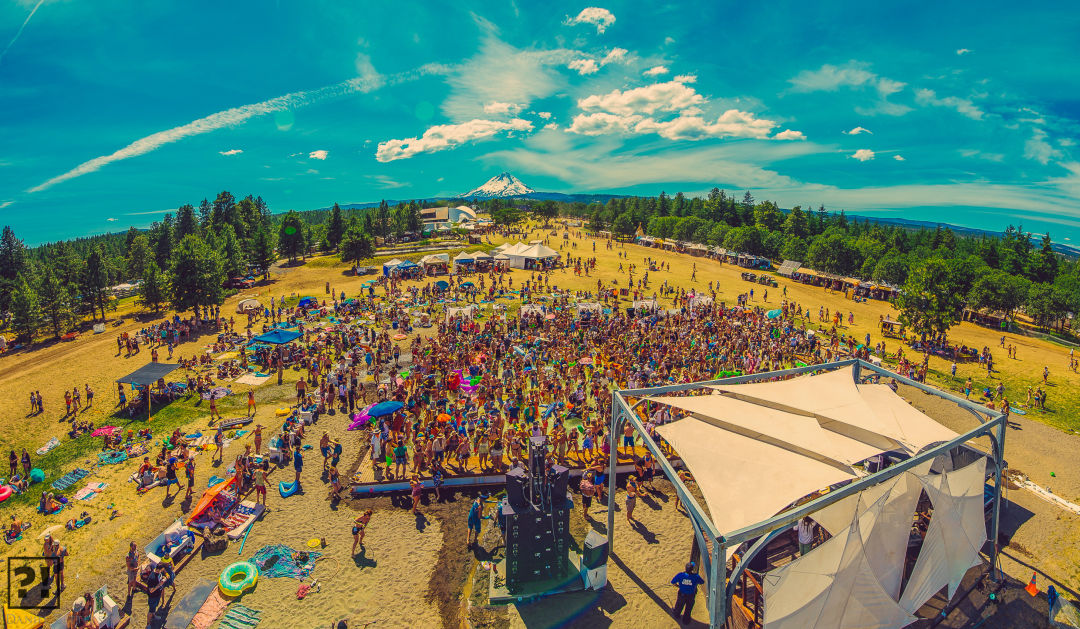
Image: Daniel Zetterstrom
You're now in the festival's fifth year. How has it grown?
GLEN: It grew from 2,000 in the first year to 5,000 last year. This year we're expecting to be around 7,000. It’s been a healthy growth curve but not astronomical.
PETER: It’s been consistent. We’ve been able to grow with the population, in terms of our infrastructure for medical, security, and safety, all the things that we take really seriously. Being able to grow those departments and grow capacity to receive more and more people.
Why do you think WTF has had such staying power?
GLEN: We’re a little bit different on all kinds of different fronts. We tend to trend a little bit older than some of the larger festivals, like Sasquatch and Paradiso. It’s also an immersive experience. We don’t sell day tickets. They’ll come in and camp all weekend, and it’s small enough that you run into people multiple times throughout the weekend. It’s almost like summer camp. It’s a completely different experience than you would get at like Coachella or a large gathering in the Gorge.
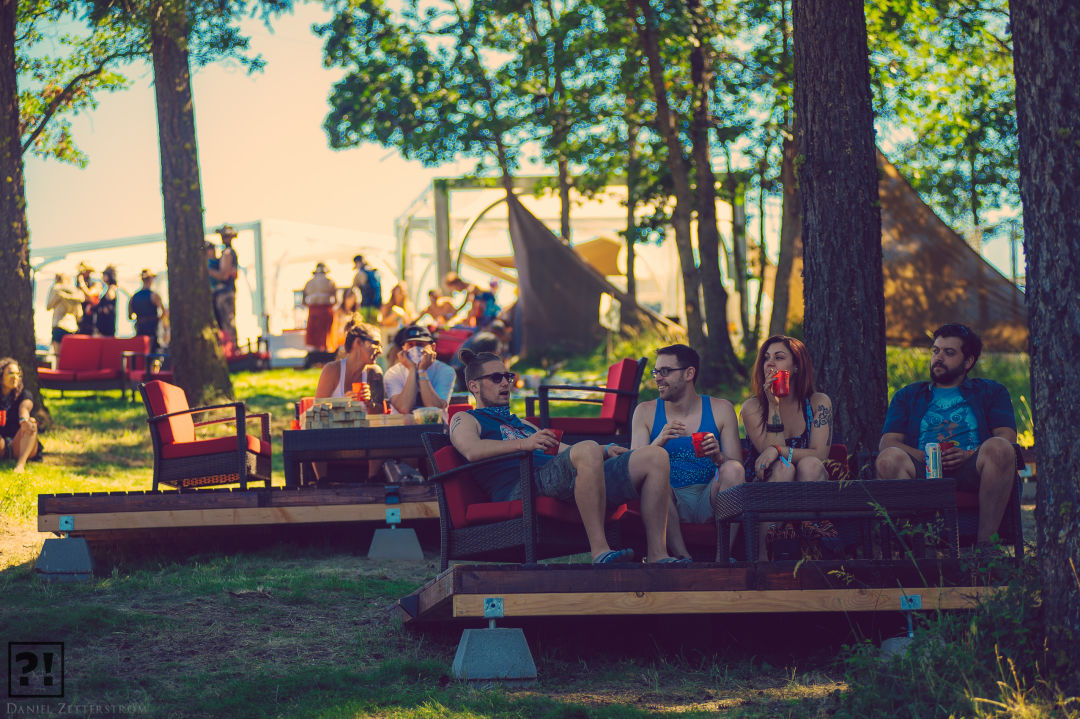
Image: Daniel Zetterstrom
Are you topping out at 7,000?
GLEN: That’s something we think about. The land itself dictates what our maximum growth is. We’re probably at the limit of the number of automobiles we can get onto the property. Any additional growth will most likely come through shuttling. For us, it’s more about reaching a point of financial sustainability, where we can hire the talent, and keep our people year-round. We’re just about there.
The festival business is an economy of scale. It’s really difficult at the level of production value that we do to be sustainable at less than 5,000 people. I know people love those intimate 2,000 person festivals, but you give up a lot to have those. At the level we’re doing it, and with the talent that we hire, we need to be in the 5-7000 range. This is that year to do that, which makes us excited.
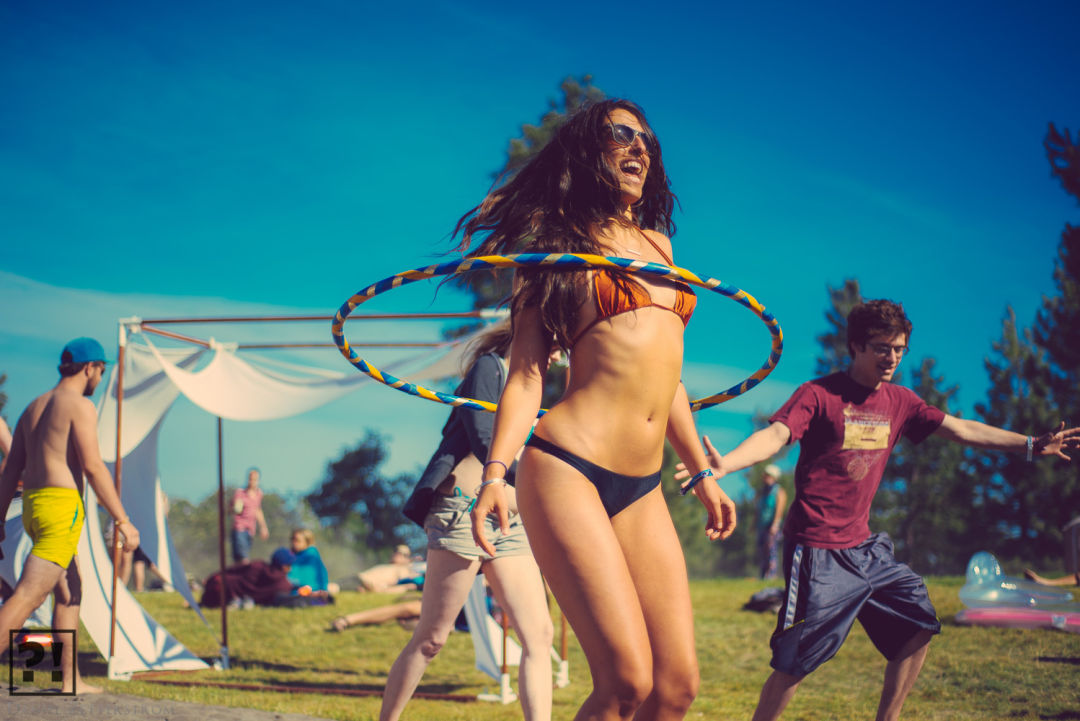
Image: Daniel Zetterstrom
On the subject of safety, some larger festivals like Paradiso have suffered from tragic, well-publicized deaths. What do you do to prevent that?
GLEN: First of all, getting the community to police each other is a huge part of it. We are also in a much more temperate environment than in the Gorge. We’re typically in the low 80s. We also provide free water everywhere—we have 14 drinking stations throughout. We don’t believe in charging for bottled water. There’s things like that that are fundamentally different. We also have a little bit of an older crowd, which makes them a little more mature. It’s hard to compare though. Coachella has I think eight or ten times the people, and they don’t have deaths. So not all festivals have those problems.
PETER: We have a huge population in their 30s and even 40-plus who love it and feel at home. Fifty percent are under 25, but only 7 percent are under 21. Seventy-five percent are under 30.
You guys own the property. How is cleanup after the weekend is over?
GLEN: It’s not bad. (laughs) It’s a pretty acculturated, leave-no-trace crowd. You know, some years are better than others, but we have a green team that helps with that. It never seems to take more than a day. You’d think it was a disaster, but it’s really just a few tents that get left behind, and hauling off the recycling.
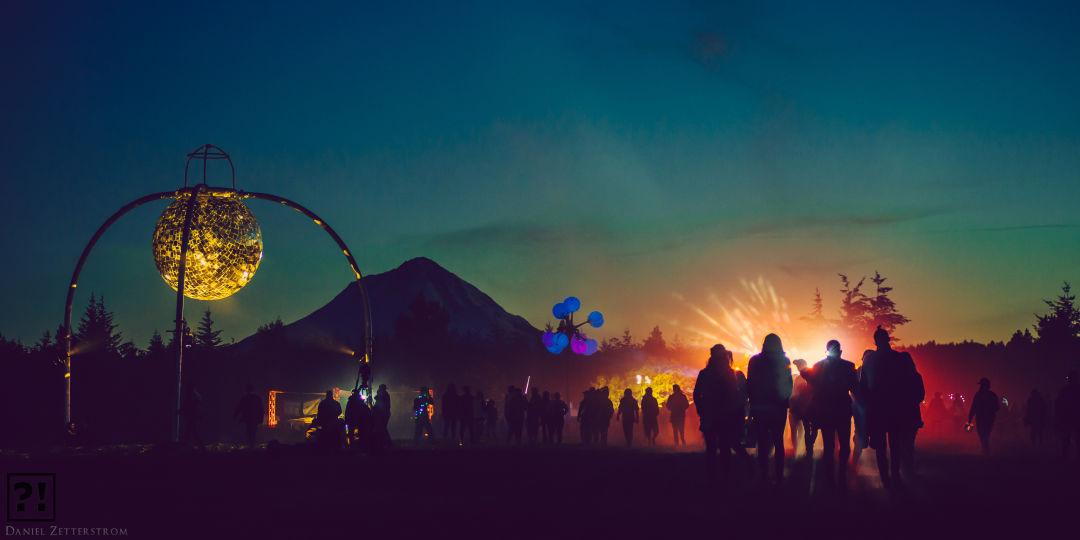
Image: Daniel Zetterstrom
Any tips for newcomers?
GLEN: I would say, pace yourself. It’s a long weekend. We have an amazing daytime lineup, because we have a pool. It’s a really fun vibe. But we also have an amazing nighttime: with the lit-up forest and the art. But take the time out to do some of the other things, we have yoga classes, we have dance classes. We have all kinds of other activities.
What the Festival
June 17–20
Wolf Run Ranch
Dufur, OR
